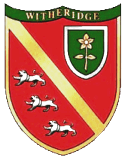

|
After his defeat of King Harold at the Battle of Hastings in 1066, William I, later to become known as William the Conqueror, quickly realized that he was never going to be win any popularity contest involving the people of England, and in consequence would have to rely on his army to maintain control. Whilst this might be an effective way of control, he also recognised that he would need some way of actually governing the country, hence the introduction of the Feudal System which was to become a way of life in Medieval England, and which would remain in place for many centuries. By the time the The Domesday Book was produced in 1085, it was evident just how thoroughly the previous system of landownership had been changed since 1066. Constructed around the obligation of the landholder or "vassal" and the Lord who held the land from the King, the Feudal System operated on the principle that all the land was owned by the King, who, as a reward for past services, and also for services to come, granted some of his Land to those Nobles who had fought for him in battle. However, this land was not simply given to these nobles, they first had to swear an Oath of Loyalty to William, agree that they would gather taxes in their area for him, and that they would provide the king with soldiers when asked. At this time in the eleventh century, an oath sworn on the Bible was a very important thing, and one which few men would dare to break as it would condemn them to Hell. The men who leased land from the King were known as Barons and had complete control of the land they leased. This land was known as a manor and the Barons as Lord of the Manor. They were free to establish their own system of justice, to mint their own money and to set their own taxes. They also had to provide lodging and food for the King and his court when they travelled around the country. The Lord who held the land also had obligations to his vassals. He was obligated to provide protection for his vassals, to give military aid, and to guard his children. If a daughter inherited upon the death of one of his vassals, then he would arrange her marriage. If there were no heirs the lord disposed of the fief as he chose. After retaining as much of their land as they needed for their own use, the Barons divided the rest between their own trusted knights who had also fought well in battle. Knights or "vassals" given land to govern by a Baron had to swear an oath to the baron, duke or earl, collect taxes when told to do so, required to attend the lord at his court, to help administer justice, and provide soldiers when they were needed. They also had to protect the Baron and his family, as well as the Manor, from attack, in addition he was expected to feed and provide shelter for his lord and his company when they travelled across his land. When a vassal died, his heir was required to publicly renew his oath of faithfulness (fealty) to his lord (suzerain), this public oath being called "homage". After keeping as much land as they wished for their own personal use, the Knights or Vassal distributed the rest to villeins (serfs). Villeins, or serfs as they were more commonly known, were at the very bottom of the system, and everything they owned, their food, homes, and animals all belonged to the lord of the manor. They worked on their lord's manor lands providing their Lord with free labour, food and service whenever demanded. Peasants were required to work for their Lord, and in return were allowed to farm their own piece of land. Many struggled to produce enough food to feed their families, much less fulfil the duties required of them from their lord. The peasants were not free to leave the manor and were required to ask for permission. To gain freedom a peasant had to save money for his own land or marry a free person. Although they could not be sold as if they were slaves, they were in reality, little better than slaves. The reality of the Feudal System meant that the country was not governed by the king, but by individual lords, or barons, who administered their own estates, dispensed their own justice, minted their own money, levied taxes and tolls, and demanded military service from vassals. Usually the lords could field greater armies than the king. In theory the king was the chief feudal lord, but in reality the individual lords were supreme in their own territory, leaving many kings as little more than figurehead rulers. There is little doubt that life under William's rule was harsh, and that the English people lived under the constant threat of Norman soldiers being used against them. The Lord's role was simple, to keep the English people in their place under Norman control. In medieval England, their work was supervised by a village official called the reeve. The feudal system declined from the 13th century, gradually giving way to the class system as the dominant form of social ranking, partly because of the growth of a money economy, with medieval trade, commerce, and industry, and partly because of such protests as the Peasant's Revolt of 1381. Previous Last Edited 03/07/2006 Copyright © 2000-2006 Witheridge Unless otherwise indicated on the page in question, the photographic images reproduced on this site belong to the Witheridge Archives, and, as such may not be reproduced for commercial purposes without written permission. However, you are welcome to use any of the photographs belonging to the archive for personal and/or non-commercial use. Any material shown as not being owned by the archive may not be reproduced in any form without first receiving written permission from the owner of the material in question. The copyright for the illustration of The Domesday Farm belongs to Witheridge Artist and Illustrator Jenny Bidgood. |


